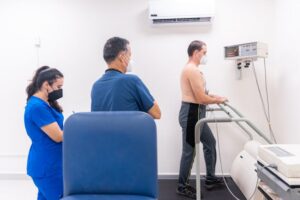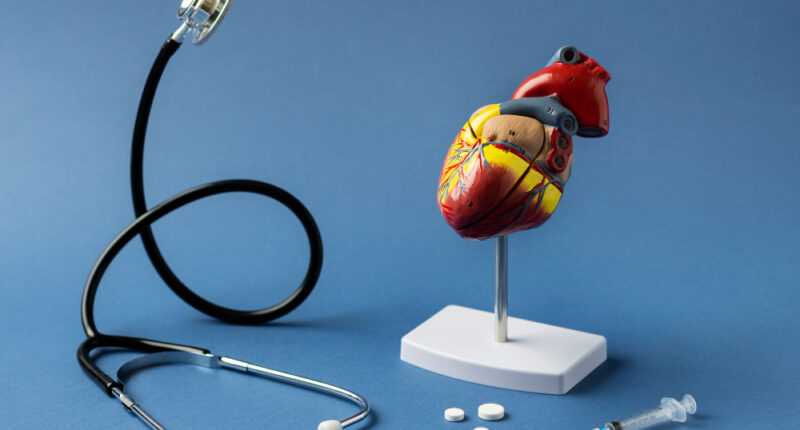Cardiac rehabilitation, or cardiac rehab, is a medically supervised program designed to help individuals recover from heart surgery, heart attack, or other heart-related conditions. It is crucial in improving cardiovascular health, enhancing quality of life, and reducing the risk of future heart issues. This blog will explore the benefits of cardiac rehab, what to expect from the program, and how it can be a transformative step toward a healthier heart.
What is Cardiac Rehab?
Cardiac rehab is a comprehensive program that combines medical evaluation, physical activity, lifestyle education, and emotional support. It is tailored to meet the specific needs of individuals recovering from heart conditions, aiming to improve heart function and overall well-being. The program typically includes:
Medical Supervision: Healthcare professionals regularly monitor to ensure safety and adjust treatment as needed.
Exercise Training: Structured exercise regimens designed to improve cardiovascular fitness, strength, and endurance.
Educational Sessions: Information on heart-healthy living, including diet, smoking cessation, stress management, and medication adherence.
Emotional Support: Counseling and support to help individuals cope with the emotional aspects of heart disease and recovery.
Benefits of Cardiac Rehab
Participating in a cardiac rehab program offers numerous benefits, including:
Improved Heart Health: Regular exercise and lifestyle changes can enhance heart function, lower blood pressure, and reduce cholesterol levels.
Reduced Risk of Future Heart Events: By managing risk factors such as high blood pressure, diabetes, and obesity, cardiac rehab helps decrease the likelihood of future heart problems.
Enhanced Physical Fitness: Exercise training improves cardiovascular fitness, muscle strength, and overall physical endurance, making daily activities easier and more enjoyable.
Better Quality of Life: Individuals often experience improved mood, reduced anxiety, and enhanced overall well-being as they regain confidence and independence.
Education and Self-Management: Learning about heart health and how to manage risk factors empowers individuals to take control of their health and make informed decisions.

What to Expect in a Cardiac Rehab Program
A typical cardiac rehab program consists of several components, each designed to address different aspects of recovery:
Initial Assessment: The program begins with a thorough evaluation by healthcare professionals, including a review of medical history, current health status, and personal goals. This assessment helps tailor the program to individual needs.
Exercise Training: Participants engage in supervised exercise sessions that include aerobic activities (such as walking or cycling) and strength training. Exercise intensity is gradually increased based on individual progress and fitness levels.
Educational Workshops: Participants attend workshops or one-on-one sessions covering topics such as heart-healthy eating, weight management, stress reduction, and medication management.
Psychosocial Support: Counseling and support groups are available to help individuals address emotional challenges, cope with lifestyle changes, and build a strong support network.
How to Get Started with Cardiac Rehab
If you’ve recently experienced a heart event or surgery, talk to your healthcare provider about enrolling in a cardiac rehab program. They can provide recommendations and referrals to accredited programs in your area. Here are some steps to get started:
Consult Your Doctor: Discuss the benefits of cardiac rehab with your healthcare provider and determine if it’s suitable for your condition and recovery stage.
Find a Program: Look for a reputable cardiac rehab program at a hospital, clinic, or specialized facility. Ensure that the program is certified and staffed by qualified healthcare professionals.
Commit to the Program: Dedicate time and effort to participate fully. Adhere to the exercise regimen, attend educational sessions, and actively engage in counseling and support.
Maintaining Heart Health Post-Rehab
After completing a cardiac rehab program, it’s essential to continue practicing heart-healthy habits:
Stay Active: Incorporate regular physical activity into your daily routine. Aim for at least 150 minutes of moderate-intensity exercise per week, as your healthcare provider recommends.
Follow a Heart-Healthy Diet: Maintain a balanced diet rich in fruits, vegetables, whole grains, lean proteins, and healthy fats.
Manage Risk Factors: Monitor blood pressure, cholesterol levels, and blood sugar, and adhere to any prescribed medications or treatments.
Seek Ongoing Support: Continue attending follow-up appointments and seek support if needed to stay motivated and address any challenges.
Conclusion
Cardiac rehab is a vital component of recovery for individuals with heart conditions, offering a structured approach to improving heart health and overall quality of life. Participating in a cardiac rehab program can enhance cardiovascular fitness, reduce the risk of future heart events, and gain valuable knowledge and support for long-term well-being. Consult your healthcare provider to explore the benefits of cardiac rehab and take the first step towards a healthier, stronger heart.
This blog is designed to be engaging and SEO-friendly, providing comprehensive information about cardiac rehab.









